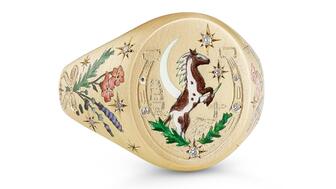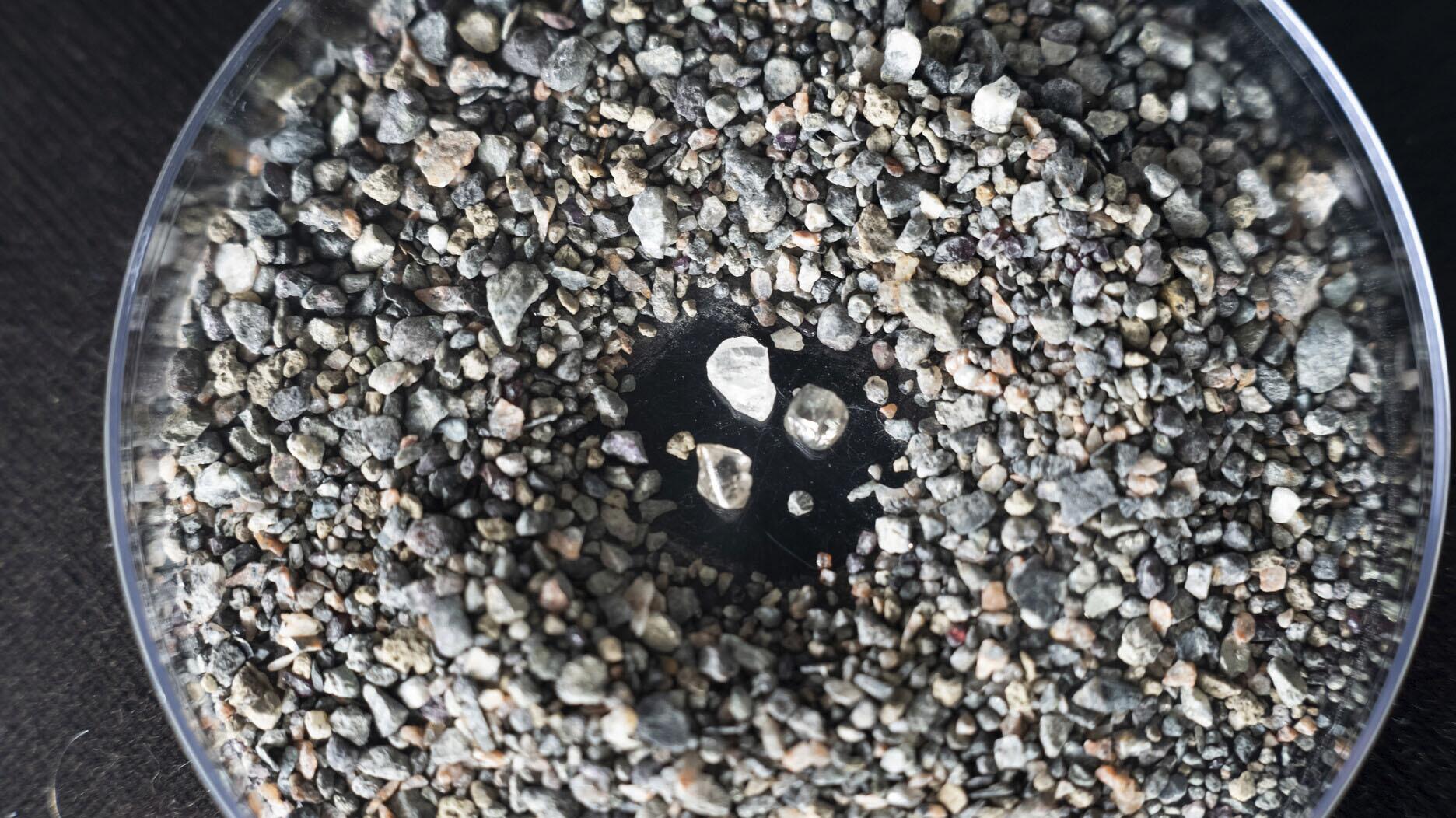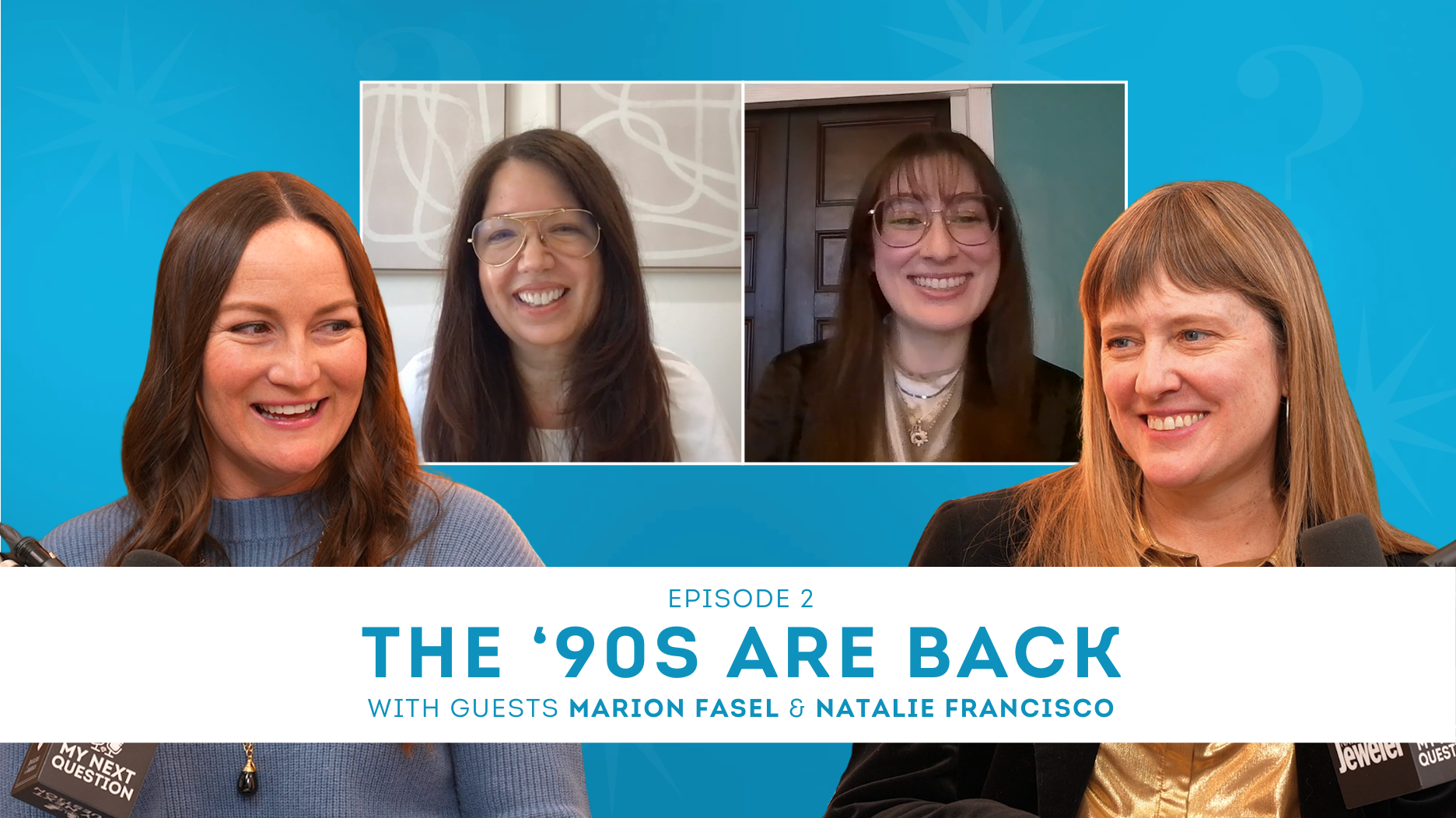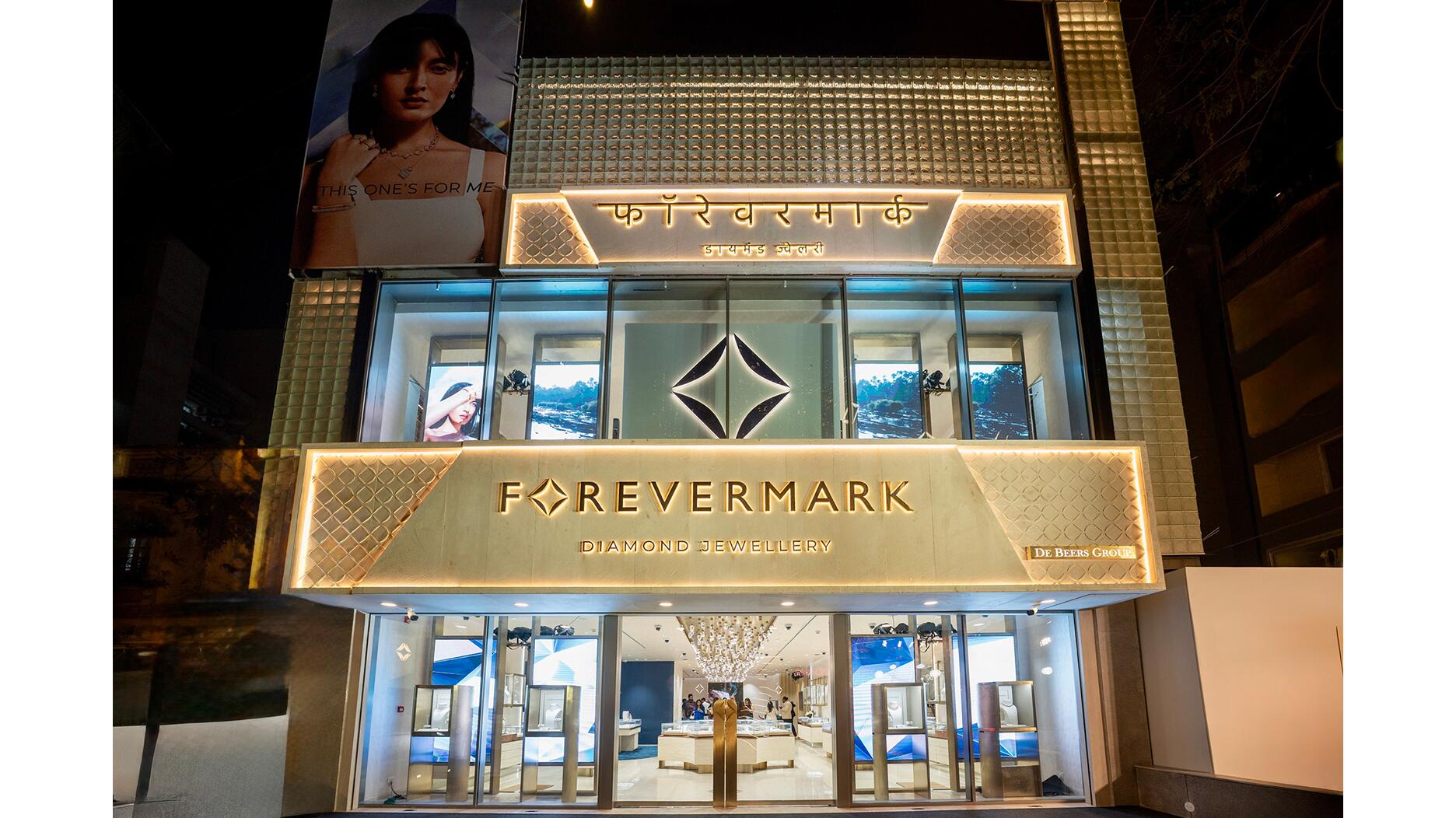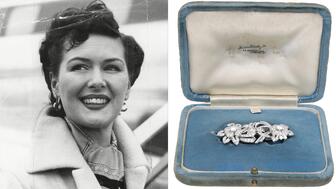The jewelry collection belonged to “one of society's most glamorous and beautiful women of the mid-20th century,” said the auction house.
KP Again Can’t Agree on ‘Conflict,’ Eases Restrictions on CAR
The decisions mark the end of a three-year reform cycle for the Kimberley Process.

New York—The Kimberley Process wrapped up a three-year reform cycle unable to reach an agreement on expanding the definition of what constitutes a “conflict” diamond, an issue it has been debating for nearly a decade.
The current definition of a conflict diamond is: rough diamonds used by rebel movements, or the allies of rebels, to finance conflict aimed at undermining legitimate governments.
Those pushing for reform want to expand it to include language that addresses human rights abuses more generally—sexual violence, torture and abuses committed by groups other than rebels, such as private and public security forces.
The official statement from the meeting, held last month in New Delhi, India, noted the Plenary “welcomes the in-depth discussions that took place on how best to capture the evolving nature of conflict and actors involved in conflict,” but “no consensus could be found on an updated conflict diamond definition.”
The KP operates on a complete-consensus model, meaning all 55 participants (representing 82 countries) have to agree to any resolution in order for it to pass.
The failure of the KP to expand the definition of conflict again ignited debate about the future and relevancy of a process that has failed to evolve even as consumer demand for transparency, and the technology around traceability, has advanced.
In a statement posted on KPCivilSociety.org, Shamiso Mtisi, the Zimbabwe-based coordinator of the KP’s Civil Society Coalition, the group of non-governmental organizations that are non-voting members of the KP, called the meeting a “sad and surreal spectacle” in which participants could not agree on anything substantial.
In addition to the definition of conflict, other reform issues were “kicked into the long grass,” Mtisi said, including the creation of a permanent secretariat and a multi-donor fund.
“While KP participants were busy rearranging deck chairs on the Titanic, African communities supported by the members of our civil society coalition continue to suffer the downside of diamond riches,” the statement reads.
“This involves harms to their livelihoods, environmental damage and … often still violence and abuse. This plenary failed to give these communities any reassurances that the Kimberley Process actually cares. In the same way, states failed to provide any answers to the insistent marketing of synthetic diamonds as ethically superior alternatives to natural diamond purchases.”
The Civil Society Coalition’s statement concluded that the KP lost more relevance and credibility at the recent plenary and that it will
World Diamond Council President Stephane Fischler pushed back against the idea that debating the same issue for nearly a decade with no action has rendered the KP irrelevant.
The WDC, like the Civil Society Coalition, has observer status in the KP, meaning it is there as a non-voting member representing a specific sector. In the WDC’s case, it represents the diamond industry.
Fischler said not so long ago, the idea of adding human rights language to the definition of what constitutes a conflict diamond was not even up for debate. African countries that would not come to the table on the issue have now realized the importance of a strong KP.
“More than ever, we managed to have this debate and that’s really, really important,” he said. “I certainly felt that finally, they get it. And it’s encouraging.”
Fischler also pointed to the steps the KP made to strengthen the alluvial mining sector in Africa—including the Mano River Union initiative to strengthen implementation of KP standards in Cote d’Ivoire, Guinea, Liberia and Sierra Leone—and the work it is doing to support the Central African Republic (CAR), the only country today grappling with conflict diamonds.
“The KP is focused on the risks, and the major risks are in the alluvial and artisanal mining sectors,” he said.
“We should not abandon it,” he said of the KP and, instead, have to strengthen it.
The CAR Decision
At the plenary, KP participants agreed to loosen restrictions on exports of rough diamonds from the Central African Republic, in an effort to encourage legal exports and put an end to smuggling, which is widely acknowledged to be a huge problem in the country.
The KP banned rough diamond exports from CAR completely in 2013 due to rebel violence. The easing of restrictions began in 2016 with exports allowed from one approved area.
Today, there are eight so-called green zones in CAR.
KP members voted to allow the CAR government to issue KP certificates to rough diamond shipments at will for goods sourced from the eight green zones; before, the government had to get approval from the CAR Monitoring Team for KP certificates for each export.
The team will still continue to monitor all legal exports from the country.
The country, in concert with KP members, also agreed to lower the export tax from 12 to 4 percent and require anyone who wants to obtain an export license to demonstrate he or she is shipping out at least $1 million in rough diamonds per month.
This, Fischler said, helps to ensure exports are getting the goods out of the country legally.
The Civil Society Coalition said the decision was “one of the rare substantive engagements” from the meeting.
“As civil society coalition, we call on CAR’s authorities to make this experiment work and strengthen internal controls in order to curb fraud and diamond smuggling in the country,” Mtisi said.
Following the KP Plenary, the WDC issued a notice to members of the diamond industry regarding the changes made to the rough diamond export process in CAR.
It said the new system “shifts some of the burden of verifying the provenance of goods to the trading centers” and said members of the trade need to “practice enhanced vigilance” when handling rough diamonds they believe originated in the Central African Republic.
The changes in CAR are provisional and will remain in place for one year. The KP will reassess the situation in 2020.
The 2019 KP Plenary Meeting took place Nov. 18-22 in New Delhi, India; India was this year’s chair nation, with Russia serving as vice chair.
Next year, Russia takes over as the country leading the process, with Botswana as vice chair.
The Latest

Emmanuel Raheb discusses the rise of “GEO” and the importance of having well-written, quality content on your website.

Each received around four years for burglarizing a jewelry store and a coffee shop in Simi Valley, California, last May.

Every jeweler faces the same challenge: helping customers protect what they love. Here’s the solution designed for today’s jewelry business.
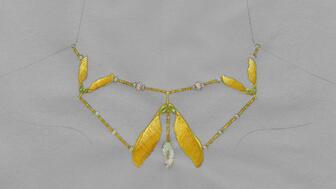
Catherine Aulick, a GIA graduate, received the ninth and final Gianmaria Buccellati Foundation Award for Excellence in Jewelry Design.


We asked a jewelry historian, designer, bridal director, and wedding expert what’s trending in engagement rings. Here’s what they said.

Beth Gerstein discusses the vibe of the new store, what customers want when fine jewelry shopping today, and the details of “Date Night.”

With refreshed branding, a new website, updated courses, and a pathway for growth, DCA is dedicated to supporting retail staff development.

Are arm bands poised to make a comeback? Has red-carpet jewelry become boring? Find out on the second episode of the “My Next Question” podcast.
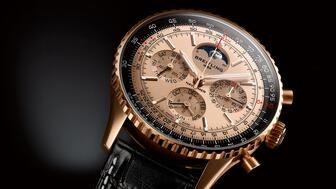
The Swiss watchmaker is battling declining sales amid a rapid retail expansion, according to a Financial Times report.
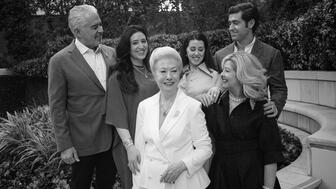
The campaign celebrates Giustina Pavanello Rahaminov, the co-founder’s wife and matriarch of the family-owned brand, for her 88th birthday.
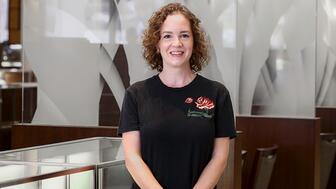
Rachel Bennett, a senior jeweler who has been with Borsheims since 2004, earned the award.

After the Supreme Court struck down the IEEPA tariffs, President Trump imposed a 10 percent tax on almost all imports via a different law.

The industry veteran, who was with The Edge Retail Academy for 14 years, joins her husband at the company he founded in 2022.
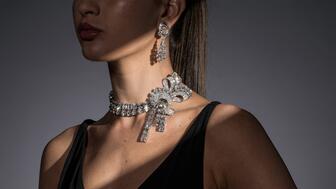
The vintage signed jewelry retailer chose Miami due to growing client demand in the city and the greater Latin American region.

Former Flight Club executive Jin Lee will bring his experience from the sneaker world to the pre-owned watch marketplace.
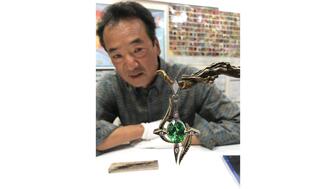
Sakamoto, who died in mid-January following a sudden illness, is remembered for his humility and his masterful, architectural designs.
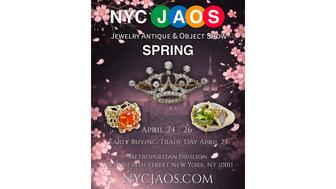
The April event will feature a new VIP shopping day requiring a special ticket.

Bulgari chose the British-Albanian singer-songwriter for her powerful and enduring voice in contemporary culture, the jeweler said.

In a 6-3 ruling, the court said the president exceeded his authority when imposing sweeping tariffs under IEEPA.

Smith encourages salespeople to ask customers questions that elicit the release of oxytocin, the brain’s “feel-good” chemical.
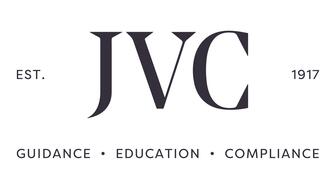
JVC also announced the election of five new board members.
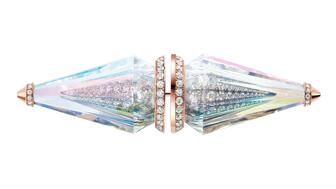
The brooch, our Piece of the Week, shows the chromatic spectrum through a holographic coating on rock crystal.

Raised in an orphanage, Bailey was 18 when she met her husband, Clyde. They opened their North Carolina jewelry store in 1948.

Material Good is celebrating its 10th anniversary as it opens its new store in the Back Bay neighborhood of Boston.
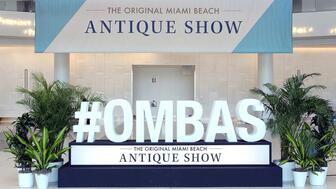
The show will be held March 26-30 at the Miami Beach Convention Center.
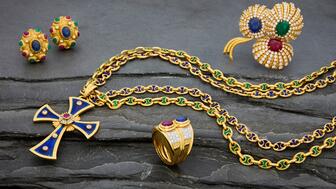
The estate of the model, philanthropist, and ex-wife of Johnny Carson has signed statement jewels up for sale at John Moran Auctioneers.




